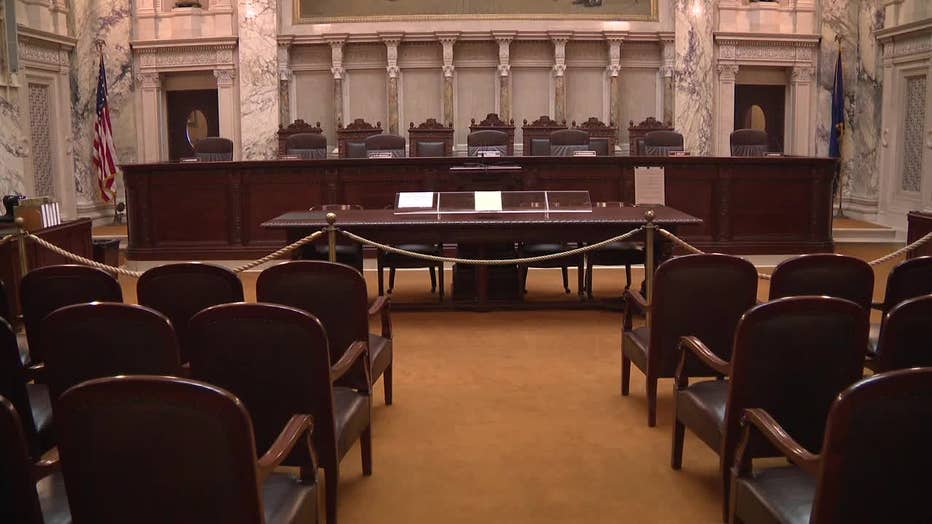Wisconsin Act 10; political battle over collective bargaining law

Wisconsin Act 10; political battle over collective bargaining law
The stage is set for another fight over Wisconsin's collective bargaining law.
MILWAUKEE - Republican legislators appealed a Dane County judge's Monday ruling striking down core parts of Act 10.
Act 10 made changes to government pension contributions; for one, it stated general government employees could not collectively bargain over retirement contributions and health insurance premiums, while public safety unions still could negotiate benefits. Dane County Judge Jacob Frost ruled that that distinction between groups in multiple sections of Act 10 broke the Wisconsin Constitution's equal protection clause.
In practice before Act 10, Wisconsin state and local governments paid 99% of all contributions to the Wisconsin Retirement System – the state's pension plan, according to the Wisconsin Policy Forum. But since Act 10, those researchers found the number is more of an equal split between the governmental employer and the employees.

SIGN UP TODAY: Get daily headlines, breaking news emails from FOX6 News
The Wisconsin Policy Forum estimated from 2011 to 2017, that change alone saved state and local governments some $5.2 billion.
But union members say taxpayers have been paying for Act 10 in other ways.
"The district is struggling to get qualified teachers. I know several that actually left the state, went to Illinois to teach because they have better benefits down there versus up here. And to me, that is ludicrous. We should attract the best of the best for Wisconsin," said Rocco DeMark, SEIU Wisconsin Executive Board Member and Racine Unified Schoo District employee.
FREE DOWNLOAD: Get breaking news alerts in the FOX6 News app for iOS or Android
"If we rewind the tape back as if Act 10 never happened,100% of that retirement contribution, for Washington County in today dollars, that’s about $3.5 million hit to the taxpayer, hit to the budget," said Josh Shoemann, Washington County Executive.

Wisconsin Supreme Court
Republican legislators appealed the Dane County judge's ruling striking down major parts of Act 10. The appeal goes to the Court of Appeals District II in Waukesha.
The appeal process could play out just as Wisconsin is getting ready for its next big election: control of the Wisconsin Supreme Court will again be on the ballot in April. Right now, liberals have a 4-3 majority, but a seat held by a liberal will be on the ballot in April.

